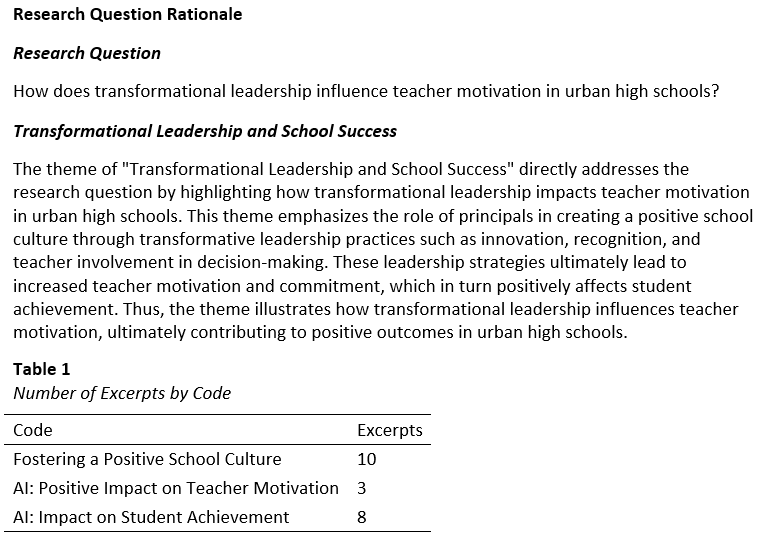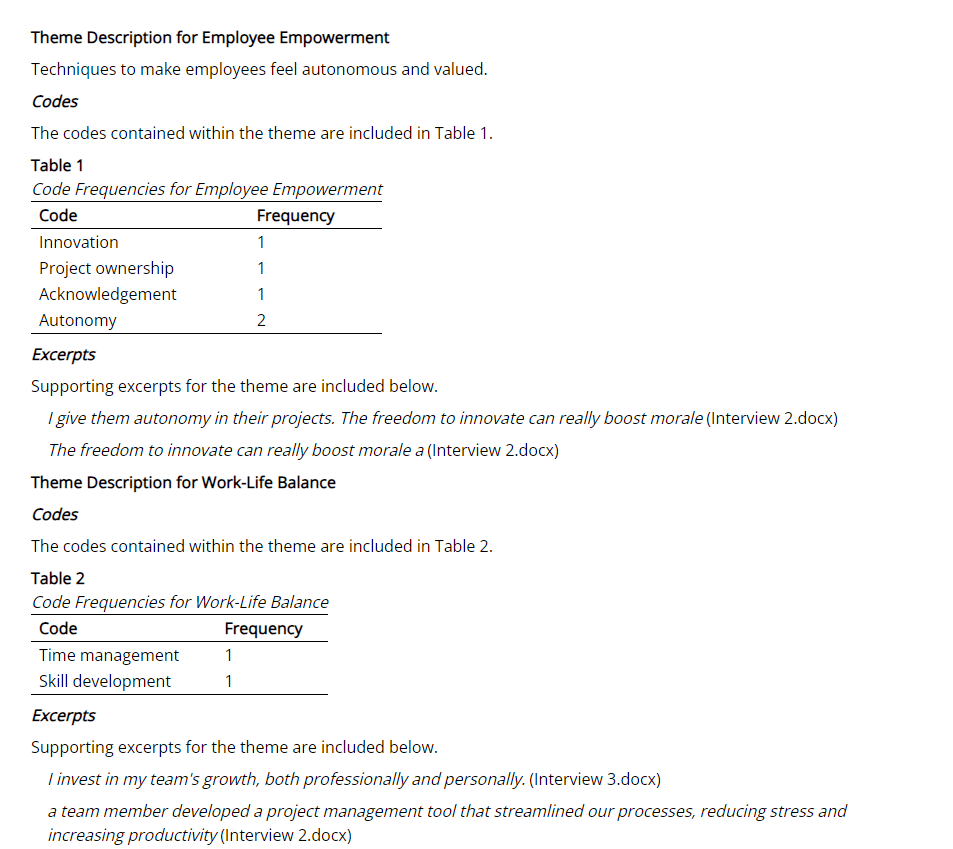Features
Intellectus Qualitative supports students, faculty, and researchers to conduct qualitative research easily and seamlessly. We keep things simple with intuitive user-interfaces and functionality for transcribing, coding, thematizing, assessing interrater reliability, and generating a comprehensive summary report. To further support users, we offer video tutorials, unmatched customer support, and various training options, guaranteeing success.
AI Coding and Thematizing
Autocoding Features in Intellectus Qualitative
Inductive: Jumpstart your data analysis with our inductive autocoding system. Designed for exploratory research, this feature allows you to upload your narrative data with no pre-existing codes. Our advanced AI algorithms will identify significant patterns and segments of meaning, automatically excerpting these insights and generating editable code names and descriptions. We also offer a refinement option allowing you to train the AI on your preferences. While we recommend thorough familiarization with your data, inductive autocoding provides a significant efficiency boost, helping you focus on deeper insights faster.
Deductive: Perfect for structured research projects with predefined codes and research questions, our deductive autocoding feature sifts through your transcripts to find and highlight excerpts that support your existing codes. This functionality enhances the reliability of your data analysis, ensuring that every piece of relevant data is utilized effectively, thus streamlining the validation and analysis process.
Both autocoding modes are designed to complement your research expertise, providing robust support as you explore complex datasets and derive meaningful conclusions from your studies.
Once coding is complete, use the AI thematizing to group your codes into themes.
Users can also use the AI Assisted functionality to name and describe a code using excerpts or name and describe a theme using codes. The benefit of the AI assist is that it reduces bias.


Research Question-Theme Rationale
Generate a written explanation for how one or more themes can be used to address a research question.
Memoing Timeline
Intellectus Memoing provides a timeline of all activities such as code creation, theme creation, etc., and additional tags and descriptions can be added for reference. The list of memos can be added to your Insights document. This feature adds a cognitive layer to the analysis process, allowing for in-depth discussions among chairpersons, methodologists, and content experts to better teach cognitive and critical thinking processes.


Insights
Our final reports could serve as the foundation for groundbreaking thematic analyses. Intellectus Insights allows users to generate a downloadable document that summarizes the project. Four types of content can be added:
Research Question-Theme Rationale: Explanation of how one or more themes support your research question.
Theme Description: Generate a written description that consolidates your theme details, codes, and representative excerpts. This also includes a table of
Excerpt List: Generate a list of excerpts to include in your document for reference.
Memo List: Generate a list of memos that can help triangulate the coding and thematizing process with the cognitive process that informed your analysis.
Integration, Security and Accessibility
Intellectus Statistics take ease of integration, data privacy and security, and accessibility, seriously.
HIPAA & Specific Data Types
Our services are for general use and are not capable of identifying or classifying any processed or stored information as Protected Health Information (PHI), HIPAA, or any other specific data type. Any processing of data with a specific classification is purely incidental and not required to use our services. We recommend that any sensitive data be de-identified prior to being uploaded to our services. The HIPAA Privacy Rule states that once data has been de-identified, covered entities can use or disclose it without any limitation. The information is no longer considered PHI and does not fall under the same regulations and restrictions as PHI. Click here for more information on de-identifying data.
Accessibility
We’ve made Intellectus Qualitative accessible to those with disabilities by complying with Section 508 of the Rehabilitation Act (29 U.S.C. § 794d). We accomplish this by ensuring our most critical services meet the Web Content Accessibility Guidelines 2.0 and that our features follow its three principles.
Intellectus’ accessibility uses the WAI-ARIA attributes extensively to allow screen readers to announce content to users. Special attention includes keyboard navigation in many places. For example, in the data editor we’ve made sure keyboard-only users can quickly escape the spreadsheet rather than having to potentially tab through hundreds of cells.
If you’d like to learn more about integrating Intellectus Qualitative into your institution, or have questions about policies on this page, please contact us at Info@Intellectus360.com
Learn More About Intellectus Qualitative
We know that Intellectus Qualitative will benefit you and your students. Contact us today to request a demonstration, a trial, or to answer any other questions.